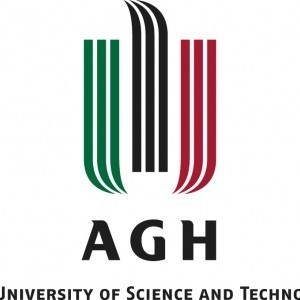Photos of university / #agh.krakow
Energy Technology: Sustainable Energy Development at AGH University of Science and Technology is a comprehensive and interdisciplinary program designed to prepare students for the rapidly evolving field of renewable and sustainable energy sources. The curriculum combines theoretical knowledge with practical skills to address global challenges related to energy security, environmental protection, and sustainable development. Students enrolled in this program gain a deep understanding of various renewable energy technologies, including solar, wind, biomass, and geothermal energy, as well as modern energy management and smart grid systems. The program emphasizes the importance of sustainable practices and innovative solutions to optimize energy production, distribution, and consumption while minimizing environmental impact.
The program is structured to provide a solid foundation in core engineering disciplines such as electrical, mechanical, and environmental engineering, integrated with specialized courses focused on sustainable energy systems. Students have opportunities to work on real-world projects, participate in internships, and collaborate with industry partners to develop practical skills. The faculty comprises experienced researchers and industry experts dedicated to fostering innovation and fostering a sustainable energy future. Graduates of this program are well-equipped to pursue careers in the renewable energy sector, consulting, research and development, or continue their academic journey in master's and doctoral programs. Overall, Energy Technology: Sustainable Energy Development at AGH University equips students with the knowledge, skills, and motivation necessary to contribute meaningfully to sustainable energy development worldwide, ensuring they are prepared to meet the demands of the 21st-century energy landscape.
Program content: The Energy Technology: Sustainable Energy Development programme at AGH University of Science and Technology is designed to equip students with comprehensive knowledge and skills necessary for the transition to sustainable energy solutions. The curriculum combines core engineering principles with specialized courses focused on renewable energy sources, energy management, and innovative technologies for sustainable development. Students will explore topics such as solar and wind energy systems, bioenergy, hydropower, geothermal energy, energy storage, and smart grid technologies. The programme emphasizes practical training through laboratory work, project-based learning, and collaboration with industry partners to ensure students gain hands-on experience in designing, analyzing, and implementing renewable energy projects. In addition, students will study energy policy, environmental impact assessment, and the economic aspects of energy development, enabling them to evaluate and promote sustainable energy solutions in various contexts. The interdisciplinary nature of the programme encourages problem-solving skills, critical thinking, and innovative approaches to energy challenges. Graduates will be prepared for careers in research and development, consulting, project management, and policy-making within the energy sector. The programme aims to foster sustainable development principles and environmental responsibility, aligning technical expertise with societal needs. Students are also encouraged to participate in international exchange programmes and internships, broadening their professional and cultural perspectives. Overall, the programme provides a solid foundation in both technical and managerial aspects of sustainable energy development, preparing graduates to contribute effectively to the global transition towards cleaner and more sustainable energy systems.
Candidates are asked to attach to the e-Rekrutacja system the following documents:
Scan of the
passport page with your photo and personal data
.
Scan of
signed Curriculum Vitae
.
Scan of signed cover letter (
template HERE
), in which a candidate is obliged to show special predispositions to study at the chosen programme of study.
Scan of the
official certificate
confirming your command of the
language of instruction
(Polish or English) – list of recognised English certificates
HERE
.
Scan of the
higher education diploma
with legalization (or apostille)
with
annotation
(or as a separate document) stating, that the diploma entitles to apply for admission to second-cycle degree programmes at universities of every type in the country in which you received the above mentioned diploma.
Scan of the
official transcript of records with scale of grades
included, confirmed by the University.
The financing of the Energy Technology: Sustainable Energy Development program at AGH University of Science and Technology is structured to ensure accessibility and support for students from diverse backgrounds. The program is primarily financed through a combination of university funds, government grants, and European Union funds allocated for higher education and innovation in sustainable energy sectors. Tuition fees are established in accordance with the regulations for non-Polish and Polish students, with differentiated rates to promote inclusivity and international collaboration. For domestic students, the fees are generally subsidized by national educational policies, making the program more accessible to a broader demographic. International students are usually required to cover the full tuition amount, which varies depending on the specifics of the program and the student's country of origin. Additional financial support options include scholarships, grants, and bursaries offered by AGH University, targeted towards students demonstrating academic excellence, financial need, or significant research interests aligned with sustainable energy development. There are also special funding opportunities provided through collaborations with industry partners, research grants, and international programs designed to promote mobility and exchange. Students are encouraged to apply for external funding sources such as Erasmus+ programs, national scholarship schemes, and various PhD funding initiatives. The university provides detailed guidance and counseling on scholarship applications, financial planning, and managing educational costs to ensure students are fully informed and supported throughout their studies. Overall, the financing structure aims to reduce financial barriers, foster academic excellence, and promote extensive research and innovation in sustainable energy development.
Energy Technology: Sustainable Energy Development at AGH University of Science and Technology is a comprehensive program designed to prepare students for challenges in the rapidly evolving field of sustainable energy. The program focuses on the development, implementation, and management of renewable energy systems, energy efficiency, and innovative technologies aimed at reducing environmental impact and promoting sustainable development. Students gain in-depth knowledge in areas such as solar, wind, hydro, biomass, and geothermal energy sources, along with modern techniques in energy storage, smart grid technologies, and energy management systems. The curriculum combines theoretical foundations with practical applications, including laboratory exercises, project work, and internships in collaborations with industry partners and research institutes. Through this program, students develop skills in designing and optimizing sustainable energy solutions, conducting energy audits, and assessing environmental and economic impacts. The program emphasizes interdisciplinary learning, integrating engineering, environmental science, economics, and policy studies to equip graduates with a holistic understanding of sustainable energy development strategies. Graduates are prepared for careers in energy consulting companies, renewable energy project development, research and development organizations, and governmental agencies promoting renewable energy policies. The program aligns with global efforts toward sustainable development and climate change mitigation, providing students with the competencies needed to innovate and lead in the green energy sector. The faculty employs modern teaching methods, including state-of-the-art laboratories, simulation tools, and collaborative projects, fostering an environment of practical learning and research. Overall, the program aims to cultivate professionals who are committed to creating sustainable energy solutions for a cleaner and more sustainable future.





